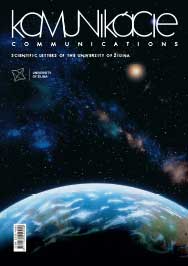An Effect of Microstructure Defects on Fatigue Resistance of Glass Fibre Reinforced Polymer Composites Used for Springs of Freight Vehicles
An Effect of Microstructure Defects on Fatigue Resistance of Glass Fibre Reinforced Polymer Composites Used for Springs of Freight Vehicles
Author(s): Ivo Cerny, Rayner M. Mayer, Ivan FürbacherSubject(s): Methodology and research technology
Published by: Žilinská univerzita v Žilině
Keywords: Fatigue properties; glass reinforced polymer (GRP); composite materials;
Summary/Abstract: Fatigue properties of glass reinforced polymer (GRP) composite materials and advanced components manufactured using GRP are discussed with an emphasis on scale and microstructure effects. Results of an experimental investigation of fatigue damage mechanisms under bending and shear cyclic loading and effects of microstructural defects resulting from an insufficient resin wet out are presented and analysed. It was shown that if microstructural defects are present in the component, initiation of fatigue damage is localised into these areas, resulting in sudden, premature failure. Fatigue life can be then reduced by more than three orders in comparison with the perfect material. The presence of defects is affected particularly by properties of the constituents and moulding parameters. Suitable changes of the process parameters resulted in a significant improvement of fatigue resistance.
Journal: Komunikácie - vedecké listy Žilinskej univerzity v Žiline
- Issue Year: 8/2006
- Issue No: 4
- Page Range: 21-24
- Page Count: 4
- Language: English

